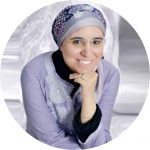
Submitted by: Robert Schuwer
Professor OER at Fontys University of Applied Sciences, Eindhoven, the Netherlands
@fagottissimo
What is Open Pedagogy?
Open Pedagogy to me seems a concept that is not defined rigorously yet. Common in all opinions is connecting the outside world to the educational process in institutions in an open way, using available open tools to realize that, creating and reusing OER by both teachers and students, realizing an active form of learning. I use an adapted form of the description of Hegarty: Attributes of Open Pedagogy: A Model for Using Open Educational Resources. Hegarty defines 8 attributes that should all be present in teaching to call this an open pedagogy. Examples are Sharing ideas and resources, using peer review and learners generating content. But I think that situations that adhere to fewer of these attributes are still connecting the outside world in a meaningful way to education. I therefore consider them also forms of open pedagogy.
Why is it important?
Open Pedagogy provides teachers with an extended set of didactical approaches to make their education more active. Characteristics of the learning processes based on this pedagogy are to challenge students to develop skills like communication a collaboration with learners and practitioners from other cultures, using ICT tools. These skills are considered important for nowadays citizens worldwide (“21st century skills”), although I believe they have always been important.
Important for me is that Open Pedagogy is an extension of and not a replacement for didactical approaches a teacher can use. Under certain conditions e.g. a “lecture hall approach” can still be a good way to teach about a subject.
What changes do you hope it will bring (for your country/region)?
I hope that open pedagogy can act as a lever to realize a greater adoption of OER by teachers because open pedagogy connects directly to the core of a teacher: teaching. It can be a means to realize the ideal lesson a teacher has in mind.
What is the future of Open Pedagogy?
I think open pedagogy will be used more and more because for an educational institution it can realize an open connection with the outside world, necessary for learners to acquire the skills they need for their future.
Hegarty, B. (2015). Attributes of Open Pedagogy: A Model for Using Open Educational Resources. Educational technology, July– August 2015, 3-13.

Submitted by: Maha Bali, PhD, Associate Professor of Practice
Center for Learning and Teaching, The American University in Cairo
@Bali_Maha
What is Open Pedagogy Anyway?
When we call anything “open” we need to clarify: What are we opening, how are we opening it, for whom, and why?
Open pedagogy is a slightly less well-defined term than, say, Open Access or Open Educational Resources (OERs). UNESCO defines OERs as “any type of educational materials that are in the public domain or introduced with an open license. The nature of these open materials means that anyone can 2legally and freely copy, use, adapt and re-share them” (Emphasis in original). OERs can support teachers and/or learners, and can reduce/remove textbook costs or provide additional learning material – but they can do more (see the section on content under my understanding of open pedagogy).
People who care about open access are making their journal articles openly available (free to access not necessarily using an open license) so that anyone in the world can access them if they have internet (even if they don’t have a library subscription) and redistribute them without permission (usually). Some people will do this for instrumental reasons (to get better citations for example) or for social justice reasons (because they want to reduce inequality in access to knowledge, or because they feel if authors and reviewers don’t get paid, then readers should not have to pay). Open scholarship takes this one step further and involves a combination of open access, open education and networked participation (see Veletsianos & Kimmons 2013; Czerniewicz 2016). For example as scholars make their work more accessible to non-experts via blogging, or interact via Twitter with others. See also this video on different approaches to “open”.
But open pedagogy? It can be any combination of those things. It’s a person who teaches and makes much of what they do open, including possibly:
- A focus on content. This may be anything from committing to use OER material, textbooks and OA articles (aiming primarily to reduce costs for students). That model can be complicated to apply if insufficient high quality materials exist for one’s subject matter, or if choosing this route implies lack of content from marginalized populations. A more pedagogically-focused extreme would involve having students curate their own content or create their own textbook (for example, what Laura Gibbs calls “untextbook”, Kris Shaffer calls “critical textbook”, and Kate Bowles calls “content, it’s us” after the rhizomatic learning work of Dave Cormier, and what I call in my practice: content-independent teaching). The latter aims to empower students to construct their own knowledge, but may need some scaffolding depending on students’ incoming critical digital literacies, and again runs the risk of missing valuable material if it is not easily available online, because “the internet is like having a classroom made of glass where students can look outside easily – but outside needs to be rich enough for that exercise to be useful”. For example, if you care that students are exposed to diverse perspectives or authors, this may not automatically happen without scaffolding.
- A focus on teaching. Some people make their syllabus public for other teachers to learn from and remix. Some people write openly about their teaching either after-the-fact to reflect, or beforehand as they are brainstorming and soliciting feedback from other educators. Others make their syllabus open to their own students and give students opportunities to comment on or even modify the syllabus (see the liquefied syllabus assignment). Some people even have students contribute tutorial videos or or assignment or test banks to be used in the same and future courses (see ds106 for assignment banks; see Rajiv Jhangiani’s work for open test banks via groups of faculty and more radically, having students create questions).
- A focus on student work being public, for example via blogging openly (listen to Robin DeRosa’s take on it). Some are cognizant of trying to create assignments that are sustainable or not disposable, assignments that would have benefit to others beyond the limited course time and space. For example, having students create their own blogs or domains (see Domain of One’s Own), edit Wikipedia or create podcasts or websites that have value beyond the course. The purpose of this is for students to use their learning in more authentic and meaningful ways, and sometimes to interact with others in the world beyond the classroom’s walls. Crucially, taking students out in the open means exposing them to certain risks beyond the safe rooms of the classroom, and those of us who do this need to be aware of differing vulnerabilities of some students and to recognize that some may not be safe working in the open.
- A focus on students networking in public. Having students interact with each other or people outside the class altogether on social media like Twitter (see my Twitter Scavenger Hunt as a small-scale example) or creating entire courses where students are constantly interacting with others outside of the course (a recent example is Networked Narratives by Mia Zamora and Alan Levine).
I would say open pedagogy is an ethos that has two major components:
- A belief in the potential of openness and sharing to improve learning
- A social justice orientation – caring about equity, with openness as one way to achieve this
Not every open pedagogy practice achieves both of these. Examples that emphasize the social justice orientation are feminist Wikipedia editathons. Examples that may or may not empower students are those involving students having a say in their syllabus, content or assignments/tests – because this may end up empowering some students but not others. One of the important questions of open education is how institutional structures may limit the degree of openness possible. A good article on this is Andrew Rikard’s “Do I Own My Domain if You Grade It?”, written while he was an undergraduate student at Davidson College. Other important critiques are how working in the open requires us to be cognizant of how student data can lose some of its privacy and be monetized by commercial providers of social media.
Suzan Koseoglu and I have gone one step further and said that someone who embraces openness as attitude or worldview can be consider their own “self as OER“. It’s someone who embraces not just open products like OERs or open access articles, but open processes and are themselves either open to change, or open to making themselves vulnerable in the open for the purpose of supporting others. Having said this, we must again recognize that “we are not equally fragile” online.
If open pedagogy is something you are interested in exploring, here are some resources that can support your exploration:
- Open pedagogy can be learner-centric or teacher-centric: http://wikieducator.org/File:Open_Pedagogy_matrix.jpg (although to me i think it’s more about being content centric vs process centric)
- Viv Rolfe and Catherine Cronin’s Go Open collection of resources: http://wikieducator.org/GoOPEN
- Resources, examples of open pedagogy from David Wiley http://openedgroup.org/openpedagogy and (here is a Google doc you can add your own examples to)
- Robin DeRosa’s Extreme Makeover: Pedagogy Edition: http://robinderosa.net/higher-ed/extreme-makeover-pedagogy-edition/
I think the one thing most open pedagogues will agree on is that open pedagogy is constantly evolving, and how we understand its benefits and limitations changes the more we practice it and explore different facets of it.
Open Pedagogy Hangout, Recorded April 24, 2017

Dr. Arthur Gill Green, Affiliate Assistant Professor, UBC Geography
arthur.green@geog.ubc.ca
arthur.green@mail.mcgill.ca
http://greengeographer.com/
What is Open Pedagogy?
At its core the term “open pedagogy” expresses the aspiration to improve learning processes through more open teaching practices. So, I believe open pedagogy encapsulates the theories and the innovative, applied strategies that support that aspiration.
That being said, I am not sure that open pedagogy can be neatly defined. There are, for example, at least two contemporary understandings of open pedagogy. One contemporary definition focuses on the use of openly-licensed content in tandem with open, effective teaching strategies, while another focuses on a more general philosophy of openness in all elements of the teaching process including open planning, open products, and open post hoc reflection. As well, in the 1960s and 1970s the term open pedagogy was also used to refer (interchangeably with “open education” and open classrooms) to learner-centered teaching approaches that were inspired by theorists such as John Dewey and Jean Piaget .
While each of the above definitions of open pedagogy has radical value in that they each advance the core aspiration of open pedagogy, I find the greatest fidelity with and utility in David Wiley’s definition of open pedagogy as the use of open education resources (OER as defined by the 5Rs) in tandem with open, effective teaching strategies.
Why is it important?
Open pedagogy is the present and future of teaching and learning. Open pedagogy is the natural progression of integrating socially just principles of human relations and the potential of current technology into the educational system. If we believe education leads to human flourishing and that education is a right, then the use and creation of OER in tandem with effective teaching and learning strategies (that is, open pedagogy) is required to establish and protect that right. Open pedagogy fulfills one of the core commitments to a democratic system by cultivating an informed, educated, and engaged electorate.
On a more personal level, open pedagogy has become not just important, but fundamental to my own approach to teaching. My engagement with open pedagogy focuses on revolutionizing the pedagogical relations between learners, learning facilitators, the production of knowledge, and the societal contexts in which we learn, teach, and live. In fact, my theoretical approach to teaching draws directly from critical pedagogy which emphasizes the awakening of a critical consciousness. Critical pedagogy questions the institutions and practices of education by supporting an approach that emphasizes teaching as a political act, learner-centered practices, praxis, the co-production of knowledge, and the educator as a facilitator. I believe practicing contemporary critical pedagogy requires engaging with OER and therefore leads naturally to experiments in open pedagogy.
What changes do you hope it will bring (for your country/region)?
I think open pedagogy has ripple effects. So, what I outline below are what I would describe as direct impacts of open pedagogy that I can see in the first couple of “ripples”, though I am sure other positive, possibly more indirect impacts (gender opportunities, environment stewardship, etc.) might occur. When open pedagogy is more widely adopted, I believe we will see the following changes within our regional education systems:
- Students and faculty working on creating and updating openly-licensed educational materials that are locally adapted.
- Learners contributing novel ideas and original research to pressing contemporary problems.
- Better retention and completion rates in post-secondary education due to lower costs and more engaging and efficient teaching strategies.
- A more critical, informed, and engaged electorate.
- Higher human capital and performance in creative applications of principles from natural and social sciences, technology, engineering, and mathematics.
What is the future of Open Pedagogy?
The future of open pedagogy is experimentation and adaptive management.
I see parallels between open pedagogy and the evolution of thought among environmental scientists regarding uncertainty and adaptive management. When my colleagues and I teach about environmental management and complex environmental issues, we believe one of the first things that students must grasp is that there is not a solution to every problem. Many complex environmental problems require adaptive management – that is, constantly using scientific principles and experimentation to find and adjust optimum conditions in the face of complex uncertainty. These problems require not only expertise in environmental science, but an understanding of the constraints and opportunities of human institutions that mediate our relationship to our environment. As well, engaging in adaptive management sometimes means a change of paradigm to re-conceptualize stubborn problems as possible opportunities.
Open pedagogy describes that same approach for the future of education. Education poses innumerable complex problems. If education is a right, then providing access to human knowledge becomes a societal obligation. There is not one teaching style that can magically address that obligation or all the complex issues involved in education. However, open pedagogy provides the tools, resources, and framework to adaptively manage and find the optimum conditions for education in many different contexts. If accessing the educational materials that everyone needs to succeed is a problem due to costs or other constraints, then it is also an opportunity to teach people about the systems that produce knowledge and how to create and share educational materials. If our institutional and professional practices in education encourage locking knowledge behind paywalls, then it is an opportunity to create communities of co-production of knowledge wherein data is shared and the learning process happens in the open accessible to many people at many levels. Our growing understanding of the science of how people learn, creative legal innovations such as Creative Commons, and the vast affordances of the internet all provide new, exciting opportunities to manage and turn enduring challenges into opportunities within our educational systems. We live, perhaps unaware, in the playground of open pedagogy.
I believe that disciplines, institutions, and departments are beginning to awaken to the potential of open pedagogy. I see exploration of how to encourage and support open pedagogy practices through new policies at all these different levels. So, I sincerely hope that effective learning strategies that involve using and making OER become the default rather than an afterthought or secondary option.
What cannot be denied is that the future of open pedagogy entails the creation of relationships, tools, and processes that allow us to improve learning processes through more open teaching practices.

How Is Open Pedagogy Different?
I feel like words should mean something. Especially the word “open.”
Read the full blog by David Wiley at https://opencontent.org/blog/archives/4943.

Submitted by: Rajiv Jhangiani, University Teaching Fellow
@KwantlenU; Senior Open Ed Research & Advocacy Fellow
@BCOpenText; Faculty Workshop Facilitator, @open_textbooks
@thatpsychprof
What is Open Pedagogy?
The boundaries of what constitutes open pedagogy are constantly being expanded, but my take is that open pedagogy refers to innovative teaching and learning practices that are only made possible through the application of open licenses. Open pedagogy is most often manifested in the form of “renewable” course assignments in which students create, revise, or remix open educational resources (OER). This might, for example, involve students revising Wikipedia articles, localizing their open textbook, creating and making publicly available openly-licensed instructional videos, or even authoring ancillary resources to support an open textbook. However, open pedagogy would also encompass instructional practices such as open and transparent course design and development (e.g., see the model adopted by the OERu).
Why is it important?
I see the growing interest in open pedagogy as a sign of a maturing open education movement, one that is quickly moving beyond a focus on OER to an emphasis on open educational practices (OEP). Whereas the development and adoption of OER continue to yield significant and vital cost savings that improve access to education, the truth is that the “free” element of OER is only one among many implications of an open license. Open pedagogy is made possible when educators move from doing the same thing with new tools (e.g., treating an open textbook as a free textbook) to exploring the affordances of the new tools. The permissions to revise and remix materials alone significantly bolster agency, among faculty who no longer need to bend their courses to map onto the table of contents of a textbook, as well as among students, whose creative and academic contributions can have a significantly greater impact.
What changes do you hope it will bring (for your country/region)?
My first hope that is open pedagogy will bring more people into the community of open educators. In my advocacy work I see faculty who learned about OER only because they first learned about and were inspired by examples of renewable assignments. For these faculty, open pedagogy serves as a gateway to adopting OER.
More broadly, my hope is that the growing awareness and adoption of open pedagogy will prompt more educators to revisit the roles of the faculty and the student in the classroom in an age when information (and misinformation) are abundant. As my colleague Robin DeRosa notes, almost every institution of higher education claims to be (or aims to be) student-centered; however, in reality our courses and classrooms are largely centered on instructors, curriculum, and accreditation requirements. Despite being houses of knowledge creation and technological innovation, universities are structures that are incredibly resistant to cultural change. Open pedagogy is an approach to education that challenges the traditional top-down structure of the academy, empowering both teachers and learners in the process.
What is the future of open pedagogy?
I think the present of open pedagogy is already pretty dynamic, as it includes massive and highly successful collaborative open pedagogy projects such as the LibreTexts initiative. But three kinds of open pedagogy projects that I think will only grow more popular over time are those that increase the reuse potential of existing OER (e.g., by translating, updating, localizing, or developing supporting materials), those that involve greater collaboration among groups of faculty and successive cohorts of students (e.g., in a programmatic fashion), and those that become integrated within larger institutional priorities and initiatives. As all of this happens, the persistent question about the sustainability of the creation and revision of OER will become moot, as the development model itself will shift to one that treats the process of knowledge creation as it really is—contextualized, co-constructed, and constantly in flux. One can only hope.

Submitted by: Heather M. Ross (B.A., B.Ed., M.Ed.)
Educational Developer (Digital Pedagogies)
University of Saskatchewan
What is open pedagogy Open pedagogy takes OER as a jumping-off point for rethinking the relationship between teachers, students, and knowledge. If teachers and students can now modify their textbooks and learning materials, we shift the student emphasis to contribution to knowledge as opposed to simple consumption of knowledge. Teachers and students become learners together, and “content” becomes a dynamic, always changing category with which we engage rather than a stable set of facts to be mastered. (DeRosa)
Why is it important: Open isn’t just about saving students money, although that is incredibly important. Open pedagogy lets us get beyond the traditional transmission of information to students and moves us toward student centred, authentic assessment that not only may improve outcomes, but also increases student buy-in.
The Future – I see great opportunities to tie this into undergraduate research and other “real-world” activities.
Open Pedagogy, Open Education Week Presentation

Perspectives on Open Pedagogy
Submitted by: Devon Ritter, Director of Education
Saylor Academy
As I recently learned, the term “Open Pedagogy” has been used for decades. Lately, there have been numerous attempts to try and define it, and those discussions have led to some really interesting clashes in point of view among educators and open advocates. For the purposes of this post, rather than try to come up with a new definition that I think everyone should use, I’m simply going to describe the first thing that came to my mind when thinking of “open pedagogy.” And giving credit where credit is due, this idea is certainly not a wholly original one, as was likely in my mind in the first place as a result of reading an idea previously shared by my colleague Steve Phillips.
My immediate thought when considering, “What is Open Pedagogy?” was, the ability for learners to shape and take ownership of their own education. While this is a very learner-centric view that some might not necessarily associate with the “practice of teaching” (and therefore maybe not even as a pedagogy of any kind), I do think that there is still a large role for teachers and educators in supporting this view of open pedagogy that may place it in the same realm of other models. I also believe there is a need for OER and other aspects of Open Education to enable individual learners to actually practice open pedagogy in this way.
Here then is a short, non-comprehensive list of things that I think are needed to support this idea of open pedagogy in practice—which I hope, and am quite sure, is taking place somewhere.
Active observation on the part of instructors and institutions
Learners are never going to be able to fully shape and own their educational experiences and journeys if they are being lead lockstep down a path. This is not to say that some students don’t want and need more direct guidance than others, but simply that for those learners who seek to actively participate in open pedagogy, there needs to be a similar level of restraint and willingness on the part of educators to be open to the idea that a student may be able to find a viable alternate route from point A to point B when attempting to learn and demonstrate their understanding of something. In such cases, the role of the educator should be to observe, monitor, and assist when needed, but otherwise to give learners the freedom to make important teaching and learning decisions for themselves.
Beyond just a willingness to accept that students might be able to put together, say, an alternate assignment, reading list, syllabus, or perhaps a full course of study, educators who support this idea of open pedagogy should actively encourage this behavior from their students. However, encouragement does not really suffice if not coupled with some level of support and guidance. This leads to the next needed item…
Open Pedagogies
Yes, in order for teachers and learners to effectively engage in the practice of “Open Pedagogy”, some “Open” pedagogies must be available. While it is easily conceivable that students will be able to develop their own learning plan (and potentially learn much more in the process by doing this), it is less apparent that they will be able to do this without some models to work from. The most direct way that an individual can facilitate this is to, of course, make their own teaching plans for a subject (which may not have originally been designed to be taught using an open pedagogy) open and available to any and all students to reuse and change to suit their learning styles, interests, and needs. Even better would be to include access to those pedagogical models and influences that led to the creation of that teaching plan.
In this way, an individual learner will have a better sense of how a teacher may have designed their course to support students, or where the teacher’s style does not fit their own learning style. Using this information, learners will be more prepared to make choices that could positively affect their own learning outcomes. In an ideal world, students practicing this form of open pedagogy will also have access and permission to build off of the pedagogies of countless educators beyond those that they interact with on a day-to-day basis. And, for those of you who enjoying getting meta, imagine a scenario where students adapt the open open pedagogies of those students who came before them!
For individual educators and institutions as a whole, another important aspect of being open in this regard is being very clear about the expected outcomes of a learning path. Learning for learning’s sake is noble and beneficial, but when their are financial strings attached (like tuition, room and board, and time spent not earning a wage), learners should be able to point to something tangible that they’ll get when finished. When those goals can be articulated—such as with the issuing of college credit or a degree—there are likely already going to be some necessary and articulated outcomes. For open pedagogy to work, students need to know what those outcomes are and how they were decided upon, or else they have little chance to design a learning plan that will prepare them appropriately.
Support of OER
Lastly, the successful, equitable, and longstanding practices of open pedagogy will be unlikely to exist without the concurrent existence of OER. Those of us working in Open Education already know that OER (as compared to the use of restrictive, copyrighted, and usually expensive learning materials) can help with issues of access when applied to traditional models of education while not diminishing the quality of education or the chances for student success—see, for instance, the paper published by Fischer et al.
Access to high quality OER is even more necessary with open pedagogy if there is to be any expectation that students self-curate and adapt learning resources in a way that will also prepare them to meet stated learning goals. Therefore, if we as a community are going to support open pedagogy, we must also support the continued development of OER by publishing new OER materials, vetting and adopting existing OER, or updating and improving OER, just to name a few. Access to high quality learning materials should not be limited to just those who can afford them, or those willing to violate copyright and piracy laws in order to benefit from them.
Photo via Billie Grace Ward, modified | CC BY 2.0
This post was written in support of the “Year of Open” and in particular, the month of April’s “Open Perspective: What is Open Pedagogy?”
Open Pedagogy Resources:
Open Pedagogy: A New Paradigm for Teaching and Learning
7 Things You Should Read About Open Pedagogy and the Evolution of the LMS
Extreme Makeover: Pedagogy Edition
Teaching & Learning: Open Pedagogy
Open Pedagogy Open Discussion (Recorded 4/24/2017)





